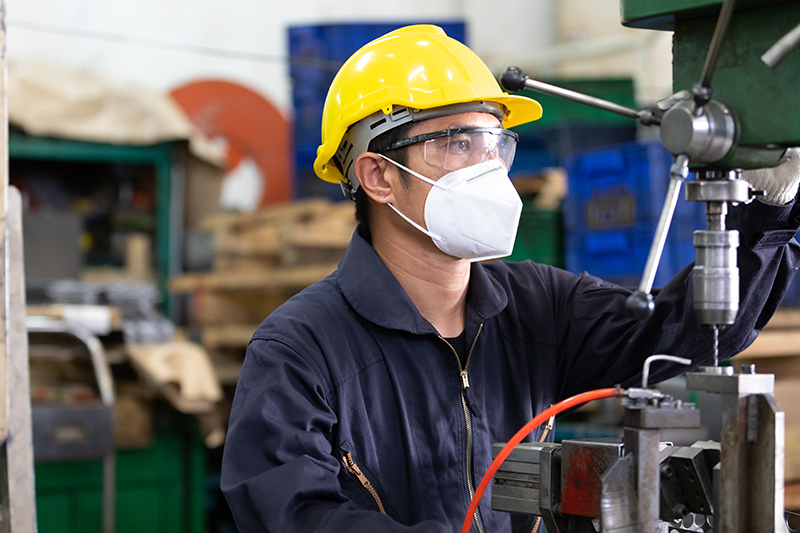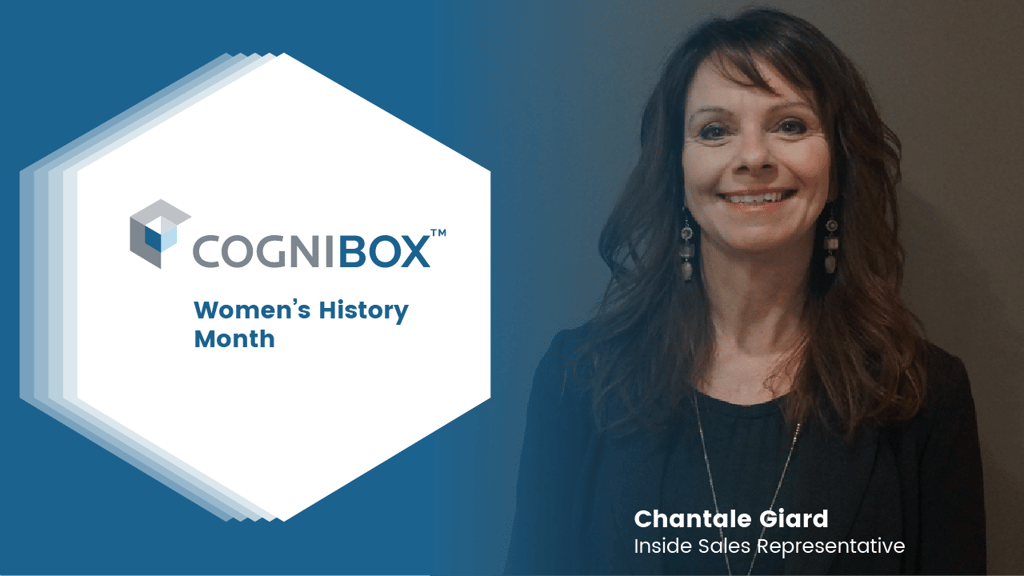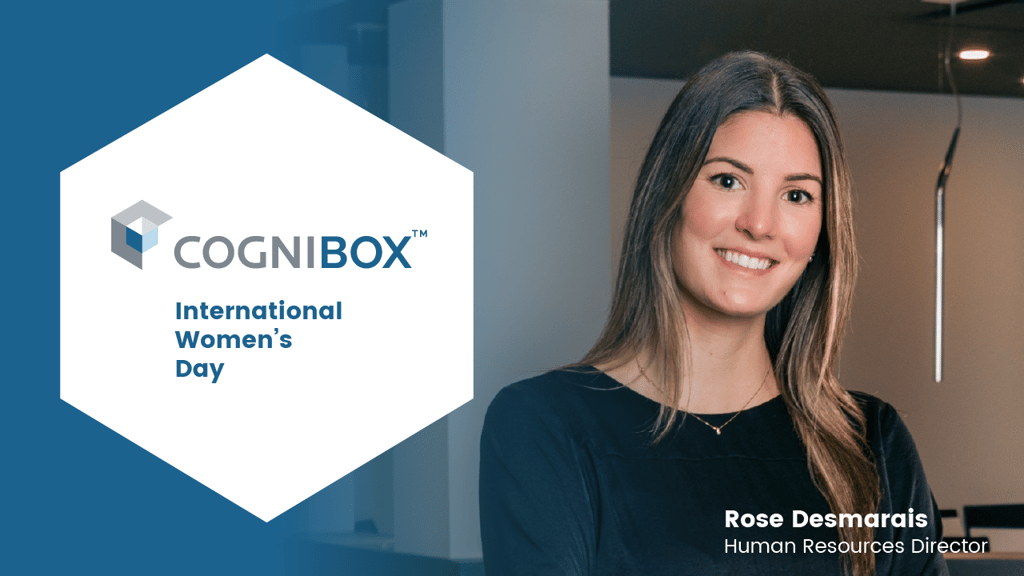It was another great year at the STAC conference! Dedicated to Canadian tower safety and devoted to sharing the important information and best practices to help maintain Canada’s world-leading tower safety record, STAC (Structure, Tower and Antenna Council) is one of the primary thought leaders in the telecommunications risk management sector.
This year’s STAC conference took place over April 12-16. Like most gatherings these days, the event was held virtually due to the limitations imposed by COVID-19.
Naturally, the pandemic was the hot topic of the conference, and Cognibox’s very own Anne-Sophie Tétreault moderated a “Coping with COVID-19” panel with telecommunications experts to get their input on strategies for managing occupational health and safety during the pandemic.
Here were the panel participants - talk about a STACked roster!
- Adam Gale - President, Vertical Specialties Inc.
- Jeff Selby - CSO / NCSO, Trylon
- Laura Marciniwe - President, Teletek Structures Inc.
- Steven Bain - Safety Manager, Rogers Communications Canada Inc.
Each speaker shared their challenges and lessons learned over the past year. Despite being in different parts of the country and working in a variety of environments, it was fascinating to hear how similar their experiences were.
Here were the main takeaways:
Pandemic Protocols - Adjusting As We Go
As prepared and proactive leaders in health and safety in the telecommunications industry, the panel experts still had to massively adjust their protocols and guidelines to manage COVID-19 in the workplace. As Laura Marciniwe pointed out, “COVID-19 was not in my 5-year business plan.”
While these organizations all had pre-existing protocols in the event of a pandemic, the reality of the situation meant many of these guidelines had to be adjusted on the fly. Provincial, state, and federal levels of government all had different and often contradictory rules and advice for protecting people against infection, and this made it difficult to know what the correct course of action was.
That proved especially challenging for Steven Bain and Rogers Communications nationwide footprint: “We have 23,000 employees across the country. We had to unify our policies across the company, even though every province had its own guidelines.”
Jeff Selby also brought up the contradictory information coming out at the start of the pandemic: “At first they told us masks don’t work, then they said they do work. Are gloves, sanitizer absolutely necessary? The picture is a lot clearer now, but there was definite confusion at the onset of the pandemic.”
A common theme amongst our panel speakers was the notion that the organization’s core values - in addition to following local rules and regulations - should dictate the best course of action:
“We knew that balance and equilibrium were key values to take care of ourselves, our teams, our customers and our partners,” Marciniwe said.
The Mental Health Toll - It Accumulates
We often talk about the physical effect of COVID-19 and the dangers of infection. Less prevalent are the discussions of the mental health toll the pandemic has had on workers and employees.
As office work transitioned to work-from-home, interconnectedness amongst the team began to fray. That meant proactive measures had to be taken to ensure employees still felt attachment to their coworkers and job.
He also mentioned having to put restrictions on employees during lockdown, such as maintaining a bubble outside of work hours, which added to the general feeling of COVID fatigue amongst his team.
The rest of the panel agreed: a greater focus needs to be put on the mental health of employees moving forward.
Of course, the telecom sector has many workers out in the field, at the top of towers, on the road and in buildings. These roles cannot be performed remotely, and that means workers run the risk of infection and must alter their workflow to adhere to local guidelines.
“Our workers often travel long distances between sites. Because of COVID, many gas stations closed restrooms for public use. That made it very difficult for our employees,” Selby mentioned.
Vaccines and Variants - Not Out Of The Woods Yet
An emphasis on the well-being of employee mental health will be particularly important as the pandemic continues to rage on in its second year.
While vaccine rollout has accelerated and the world yearns for normalcy, the threat of COVID variants and limited inoculation means telecom industry workers need to remain diligent.
“Variants of concern add an additional layer of uncertainty around a virus we thought we understood. One of the challenges with the third wave is managing employee fatigue around extended periods of restrictions,” Bain said.
In part, the onus is on the organizations to ensure employees are safe and protected against COVID-19. When asked whether companies would pay workers for time off to get the vaccine, there was consensus from the panel:
“We’ve been very clear with employees that we’re supportive of people getting the vaccine, and they would be allotted time to arrange for that,” Bain added.
Where We Go From Here
The final part of the panel involved looking toward the future of telecom work in a post-pandemic world. The speakers were asked what COVID-related changes would continue to exist even after the pandemic ends.
While the speakers were split on if remote work would permanently continue, there was a unanimous feeling that flexibility is key:
“You certainly have people at both ends of the spectrum, those who prefer working from home and those who prefer the office. We want to offer flexibility to our employees to meet them in the middle,” Bain said.
Jeff Selby says we can also expect people to be significantly more conscious of cleanliness: “Everybody’s had a very heightened awareness of hygiene - I don’t think that’s going to go away anytime soon.”
And there you have it! A big thank you to Anne-Sophie for moderating the panel and to the speakers for providing their insight. Here’s hoping next year’s STAC conference can be held in person.
Want more resources about COVID-19 management from STAC? Check out their content hub here.





